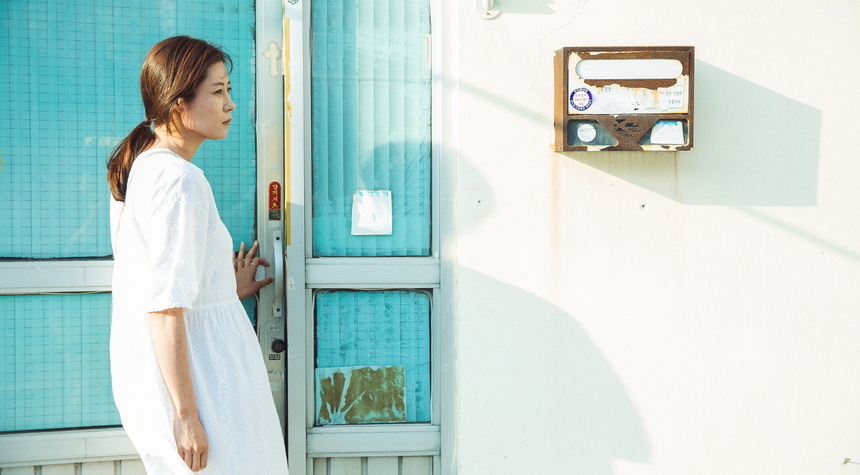Busan 2018 Review: ODE TO THE GOOSE Serenades with Strong Performances and Playful Plot

Two years after opening the festival with A Quiet Dream, director Zhang Lu returns to Busan with Ode to the Goose, a terrifically performed and breezy art drama that meanders between allegories of national identity and literary and historical references. Park Hae-il leads the cast and Moon So-ri shines among many name actors who each bring their A game to a film of two halves that starts as a coy seaside romp before morphing into something more complex, managing to retain most of its wit and cinematic verve along the way.
Poet Yoon-young has taken an impromptu trip to Gunsan with Song-hyeon, the wife of a friend he recently bumped into by chance. Following a meal at a local eatery they go to a B&B that allows them to stay, despite their reputation for turning people away. The inn is run by a Japanese-Korean man who lives their with his autistic daughter, who stays out of sight when guests are around. While Yoon-young clearly has designs on Song-hyeon, who has just divorced his friend, her attentions begin to fall on the stoic innkeeper.
Much like Gyeongju, which also features Park Hae-il in the lead, Ode to the Goose shines a light on the beauty and history of a small town that has fallen down the pecking order among Korea's bustling modern metropolises. Among its cobbled alleys and quaint eateries, the town is peppered with beautiful Japanese architecture, but the resplendence of these structures is juxtaposed with the horrors of the Japanese Colonial Era. On an otherwise beautiful day, an outdoor art exhibit displays large photograph prints of some of the terrors inflicted by Japanese soldiers on the locals in the early 20th century.
Chinese-Korean himself, Zhang has continued to explore issues of national identity throughout his work and true to form Ode to the Goose is littered with mixed-race characters and allusions to mistaken identities. Rather than offering concrete statements, he offers an abundance of playful asides, such as when a women mistakes Song-hyeon for her Chinese-Korean friend, finally realizing her mistake despite many protestations when she lifts up Song-hyeon's hair to discover that she doesn't bear her friend's birth mark. Later, we discover that Song-hyeon in fact does have a Chinese-Korean background, one of the many curious connections and coincidences that appear in the film.
While Park Hae-il makes for a compelling lead, graceful, poised and intelligent, yet surprisingly buffoonish, it's Moon So-ri who steals the show as the magnetic and lively Song-hyeon, as she plays her with boundless spirit and energy and a gift for comic timing. The rest of the cast features a number of surprising name cameos, as well as Moon Suk, the elegant 70s Korean dilm star who has had something of a comeback this year, having also impressed as one of the leads of the terrific comfort woman drama Herstory this summer.
Following a straightforward first half in Gunsan, the narrative begins to play with its locations and timeline. It eventually comes together again, but it does make the middle stretch of the film a touch disorienting. Nevertheless, just as Yoon-hyung keeps asking the women he comes across if they've met before, there is a reassuring familiarity that runs through Ode to the Goose that makes it a pleasure from start to finish, even if it isn't always clear what point Zhang is trying to get across.







